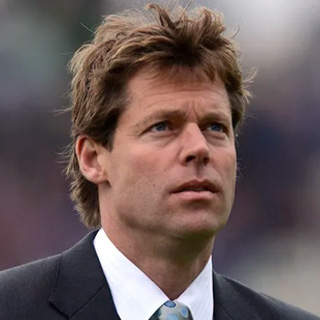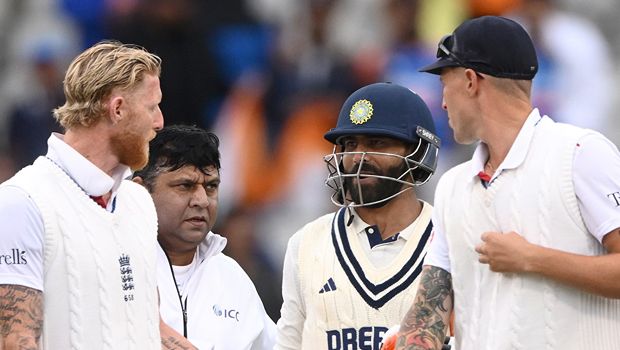The finale to the India vs England series was nothing short of unbelievable. For those who followed the series closely, the drama that unfolded on the final morning surpassed all expectations. Immense credit must go to India for discovering a way to win against the odds. Even heading into that last morning, many believed England were still favourites, requiring just 35 runs with four wickets remaining, albeit with Chris Woakes, who was expected to play only a minor role.
What stood out for India was the self-belief and resilience they carried into that final session. Throughout the series, India discovered numerous heroes. But notably, in the last few days, many players stepped up in critical moments. It’s a trait seen in the best teams in the world. India, being one of them, have shown that they are not reliant on just one or two key players to bail them out every time. That collective effort and strength in depth were especially impressive.
The batting unit, which had performed consistently well throughout the series, showcased this depth again. Despite Shubman Gill not scoring big in this one, India still managed a competitive first-innings total under challenging conditions. Then, in the second innings, Yashasvi Jaiswal rose to the occasion with a Test century. Akash Deep also played a crucial role, helping the team reach a total that seemed safe.
At different stages of the match, different players stepped up to contribute meaningfully. Sai Sudharsan, in particular, proved to be a masterful presence at number three. Though his first-innings contribution of 38 wasn’t monumental, it was instrumental in keeping India in the game. Clearly, he would have wanted to convert it into a larger score, but the value of his innings cannot be underestimated. This pattern of contribution—from various players at key moments—was a hallmark of India’s approach throughout the contest.
Among the bowlers, Mohammed Siraj undoubtedly emerged as a focal point of discussion—not just for his performance on the final day, but across the match. Prasidh Krishna also made an immense contribution, collecting wickets in both innings. His partnership with Siraj was essential, especially considering the effectiveness of his short ball strategy. He seemed to thrive in the given conditions, which offered a bit more off the surface than previous matches.
Siraj, however, embodied the spirit of a lion-hearted fast bowler. Every fast bowler needs a big heart, but Siraj appears to go beyond that. His attitude is one of relentless effort, an aura of determination that never fades. Possessing all the tools—a deadly yorker, sharp
bouncers, movement off the seam, and accuracy—Siraj still manages to make each delivery count. To be bowling at full tilt on day five of the fifth Test match is truly a testament to his conditioning and character. With no Jasprit Bumrah in the side, Siraj’s all in commitment was a spectacle to behold.
The moment that possibly defined the match, though opinions may vary over five days of riveting cricket, was the dismissal of Joe Root. Until then, even with India’s determination and belief, England seemed to have the upper hand. Root’s presence at the crease sustained England’s hope. But once he was dismissed—caught trying to guide a ball to third man—it seemed to shift the momentum entirely. It appeared as if Root was frustrated, especially after Harry Brook’s excellent innings came to an end, and Jacob Bethel’s entry, marked by poor form and rhythm, perhaps influenced Root’s shot selection.
From England’s perspective, there was palpable frustration. Finally presented with the kind of pitch they had wanted all series—after battling on flat surfaces—they couldn’t capitalize. They failed to dismiss India cheaply in the first innings. More critically, after starting their own innings on a high, with the openers reaching 92 without loss and eventually 129 for 1, they couldn’t build on that solid foundation. Not for the first time in the series, England missed an opportunity to dominate India early.
Ollie Pope’s captaincy remains in an embryonic stage. Looking ahead, England may need to assess whether Harry Brook could be a more suitable captain, especially if Ben Stokes is unavailable. Pope may continue as vice-captain, but the absence of Stokes was acutely felt. His remarkable contributions often serve as glue for the team, and without him, vulnerabilities emerged—especially in the leadership and bowling departments.
Additionally, the absence of Chris Woakes for most of the contest and the inclusion of relatively inexperienced bowlers like Overton and Atkinson exposed England further. These bowlers, having not played much cricket, couldn’t quite provide the edge. India capitalized. While it’s tempting to focus on England’s limitations, it’s equally vital to acknowledge India’s strength in exploiting those weaknesses. Reframing the narrative— India’s brilliance, rather than England’s shortcomings—offers a more accurate picture.
That said, Atkinson stands out as a long-term asset. When England’s full pace battery, including Wood and Archer, is fit, Atkinson deserves a place. That’s a definite positive. But again, India’s resilience overshadows England’s depth issues. Missing Bumrah and Rishabh Pant themselves, India too had challenges. Their ability to overcome such major absences effectively neutralizes the idea that England were disadvantaged.
Ultimately, it was the perfect end to an extraordinary series. Two words come to mind when reflecting on India’s campaign: resilience and fight. The future for Indian cricket looks exceptionally bright. Questions about who would lead the side, who would fill the void left by Virat Kohli and Rohit Sharma, and who would score the vital runs—all seem to have been answered.
Despite playing on predominantly flat pitches, India’s reduced reliance on Bumrah is perhaps the most crucial takeaway. They won two matches without him, proving they can find a way with or without their spearhead. Shubman Gill’s captaincy, in particular, warrants special praise. On the final morning, his leadership looked calm, composed, and deliberate. He communicated clearly with his bowlers, exuded confidence, and projected an aura that suggested India believed they could win.
For a young captain just beginning his journey, this match could be a defining moment. The calm assurance with which he handled that intense session speaks volumes about his potential. It’s a moment he might one day look back on as the true beginning of something special.


























